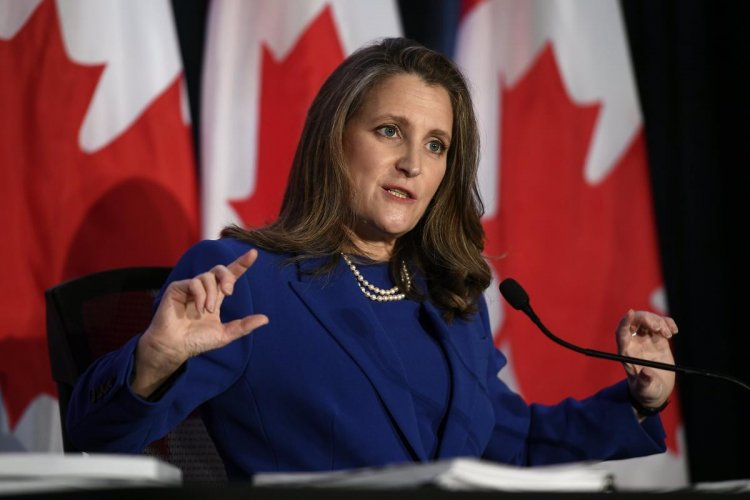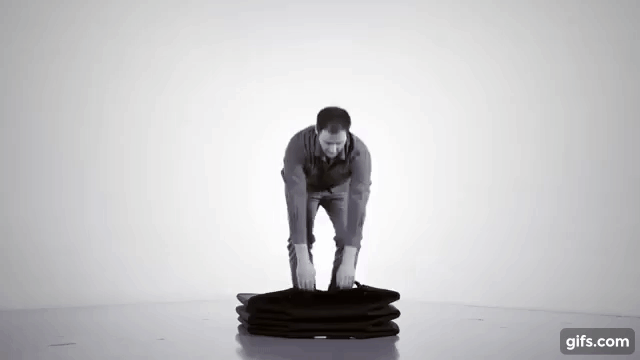Seniors, renters and low-income workers to get financial boost from government to help survive inflation
Millions of Canadians will get more money this year from the federal government as part of its plan to fight inflation, including a $500 payment for almost one million renters, and up to $766 more for more than three million seniors.Deputy prime minister and minister of finance Chrystia Freeland announced Thursday an $8.9 billion plan to help Canadians deal with record-breaking inflation.The plan includes enhancing subsidies for workers and pensioners, cutting child-care fees, and a boost for low-income renters. It also includes the first stage of a promised dental care plan for Canadians earning less than $90,000.The Macdonald-Laurier Institute’s Aaron Wudrick said while everyone is feeling the squeeze of inflation, the government is targeting specific groups to try and address the most vulnerable among Canadians. These funds will help a lot of people a little bit, he said, but they won’t ease the pain of inflation in the long run.“I think we’re in for a rough ride for the next six months to a year,” he said.Inflation rose by 6.8 per cent in April year over year, with grocery prices seeing the largest increase since September 1981 at almost 10 per cent. Gas was a key driver of inflation, up 36 per cent, and experts said if the war in Ukraine continued — which it has — consumers should expect high prices to continue at the pump and the grocery store, as the war has impacted gas prices and cereal products in particular. Meanwhile, wages grew at half the pace of prices. The Bank of Canada has been hiking its overnight rate at a breakneck pace in an attempt to cool the housing market to balance out inflation in other areas. At a speech in downtown Toronto on Thursday afternoon, Freeland pointed to Canada’s low unemployment rate as proof of a strong economic recovery from COVID-19. But despite strong employment, Freeland acknowledged that inflation is making it difficult for Canadians to afford daily life. “We will take real and tangible steps to get inflation under control and to make life more affordable for Canadians,” she said. Under the government’s new plan, the Canada Workers Benefit — a refundable tax credit — will be enhanced by $1.7 billion. That means around three million Canadians will receive up to $1,200 more per person, according to the government.Meanwhile, almost one million low-income renters will get a one-time payment of $500 this year.For seniors 75 years and older, the Old Age Security (OAS) pension will increase by 10 per cent in July 2022. This is on top of the 4.9 per cent increase to OAS and the Guaranteed Income Supplement (GIS) which are indexed to inflation. A number of benefits are indexed to inflation, namely OAS, GIS, Canada Pension Plan, the Canada Child Benefit, and the GST Credit.Wudrick said inflation in May, data for which comes out next week, will continue to be high, with gas and food the main drivers as the war in Ukraine continues. “This will help a little bit. But the things that are causing inflation have not gone away.”Improvements to dental coverage and child care were already in the works, but Thursday’s announcements gave more details on changes to come.Now that agreements have been reached with all 13 provinces and territories, child-care fees are expected to drop by an average of 50 per cent this year, according to the government. This will mean thousands of dollars in savings for Canadian families in 2022, the government estimated, up to $6,000 in British Columbia, with plans for an average fee of $10-a-day for all regulated child-care spaces across Canada by 2025-26.“Our plan makes work and life more affordable for middle-class Canadian families,” said Freeland.” Meanwhile, the dental coverage plan for Canadians earning less than $90,000 a year will begin in 2022 for children under 12.


Millions of Canadians will get more money this year from the federal government as part of its plan to fight inflation, including a $500 payment for almost one million renters, and up to $766 more for more than three million seniors.
Deputy prime minister and minister of finance Chrystia Freeland announced Thursday an $8.9 billion plan to help Canadians deal with record-breaking inflation.
The plan includes enhancing subsidies for workers and pensioners, cutting child-care fees, and a boost for low-income renters. It also includes the first stage of a promised dental care plan for Canadians earning less than $90,000.
The Macdonald-Laurier Institute’s Aaron Wudrick said while everyone is feeling the squeeze of inflation, the government is targeting specific groups to try and address the most vulnerable among Canadians. These funds will help a lot of people a little bit, he said, but they won’t ease the pain of inflation in the long run.
“I think we’re in for a rough ride for the next six months to a year,” he said.
Inflation rose by 6.8 per cent in April year over year, with grocery prices seeing the largest increase since September 1981 at almost 10 per cent. Gas was a key driver of inflation, up 36 per cent, and experts said if the war in Ukraine continued — which it has — consumers should expect high prices to continue at the pump and the grocery store, as the war has impacted gas prices and cereal products in particular. Meanwhile, wages grew at half the pace of prices.
The Bank of Canada has been hiking its overnight rate at a breakneck pace in an attempt to cool the housing market to balance out inflation in other areas.
At a speech in downtown Toronto on Thursday afternoon, Freeland pointed to Canada’s low unemployment rate as proof of a strong economic recovery from COVID-19.
But despite strong employment, Freeland acknowledged that inflation is making it difficult for Canadians to afford daily life.
“We will take real and tangible steps to get inflation under control and to make life more affordable for Canadians,” she said.
Under the government’s new plan, the Canada Workers Benefit — a refundable tax credit — will be enhanced by $1.7 billion. That means around three million Canadians will receive up to $1,200 more per person, according to the government.
Meanwhile, almost one million low-income renters will get a one-time payment of $500 this year.
For seniors 75 years and older, the Old Age Security (OAS) pension will increase by 10 per cent in July 2022. This is on top of the 4.9 per cent increase to OAS and the Guaranteed Income Supplement (GIS) which are indexed to inflation.
A number of benefits are indexed to inflation, namely OAS, GIS, Canada Pension Plan, the Canada Child Benefit, and the GST Credit.
Wudrick said inflation in May, data for which comes out next week, will continue to be high, with gas and food the main drivers as the war in Ukraine continues.
“This will help a little bit. But the things that are causing inflation have not gone away.”
Improvements to dental coverage and child care were already in the works, but Thursday’s announcements gave more details on changes to come.
Now that agreements have been reached with all 13 provinces and territories, child-care fees are expected to drop by an average of 50 per cent this year, according to the government. This will mean thousands of dollars in savings for Canadian families in 2022, the government estimated, up to $6,000 in British Columbia, with plans for an average fee of $10-a-day for all regulated child-care spaces across Canada by 2025-26.
“Our plan makes work and life more affordable for middle-class Canadian families,” said Freeland.”
Meanwhile, the dental coverage plan for Canadians earning less than $90,000 a year will begin in 2022 for children under 12.



















:quality(85):upscale()/2024/09/19/895/n/1922283/e654c37d66ec89a3911ce6.42966442_.png)
